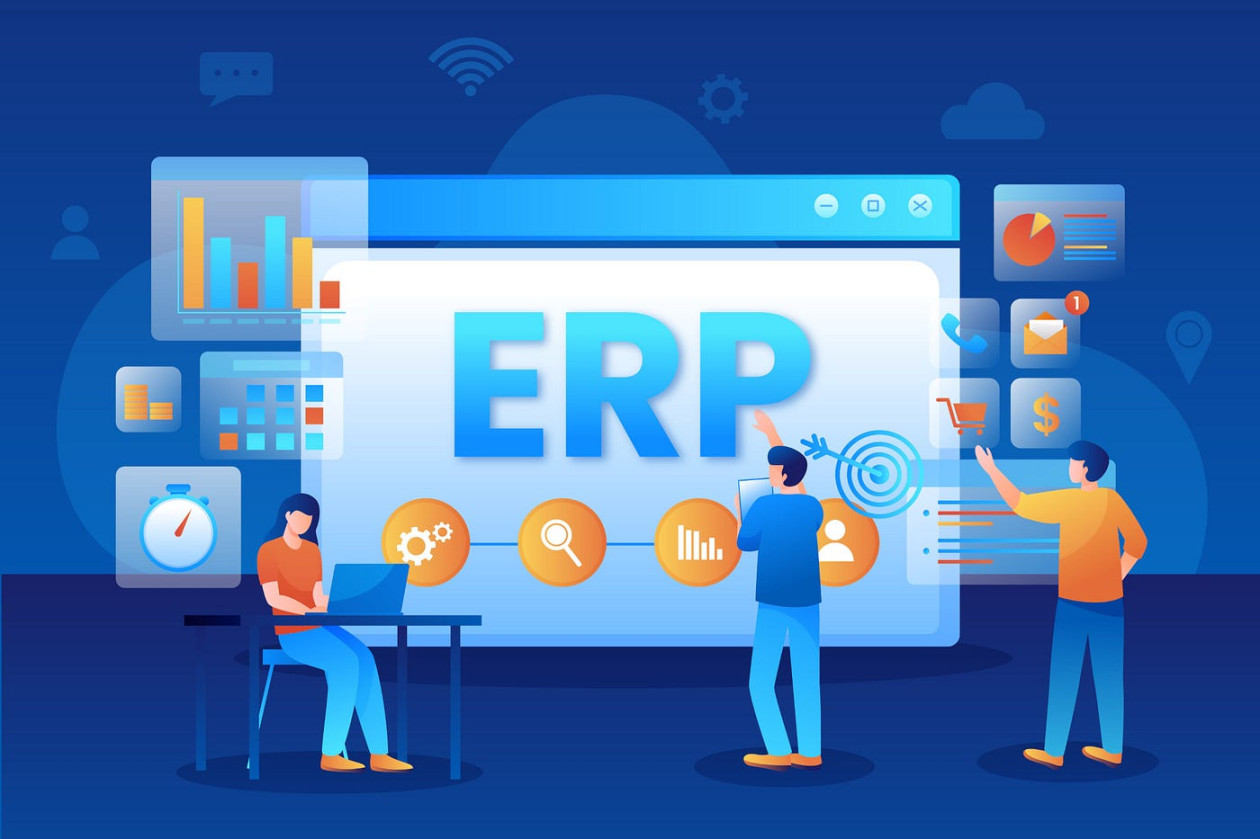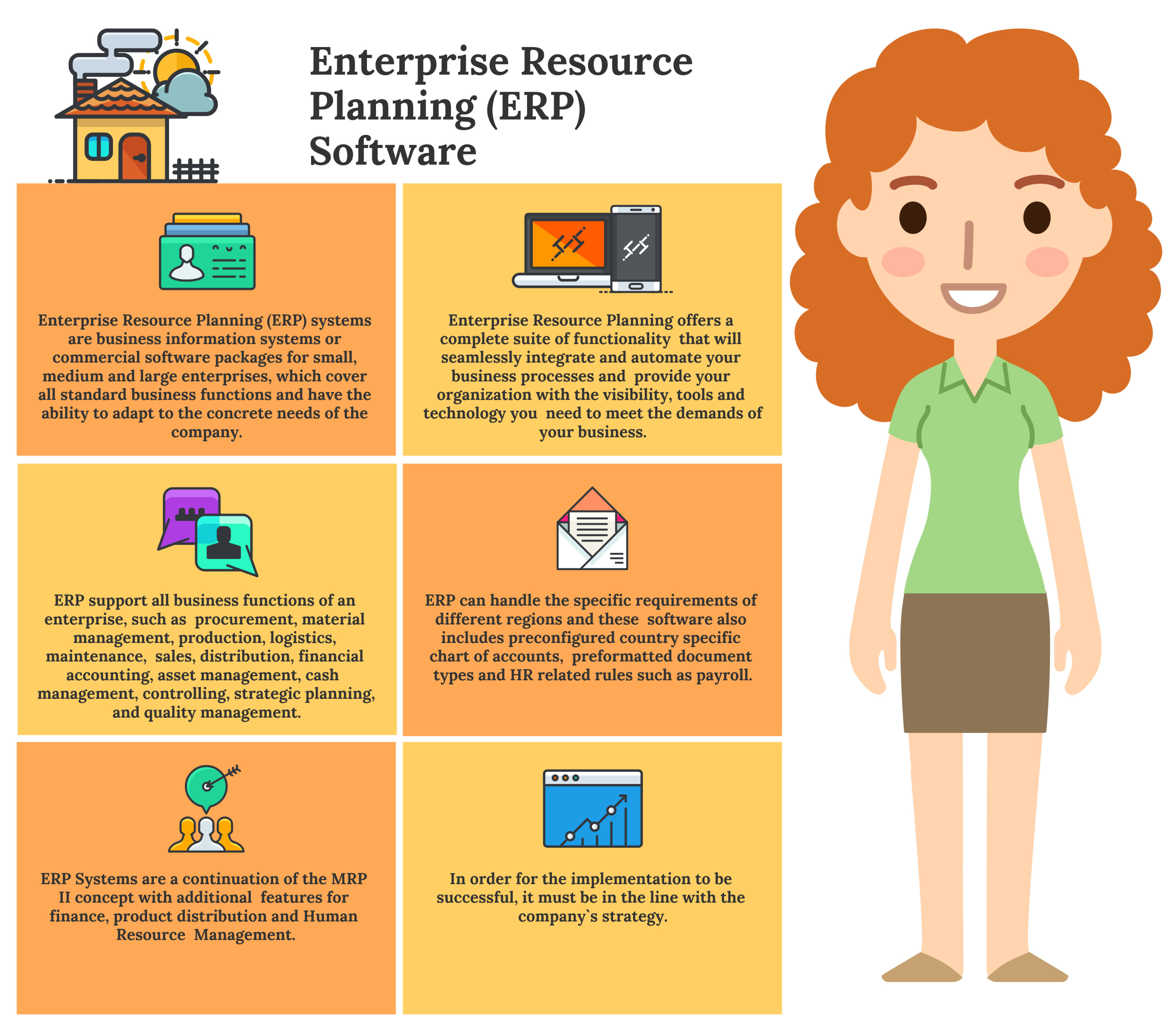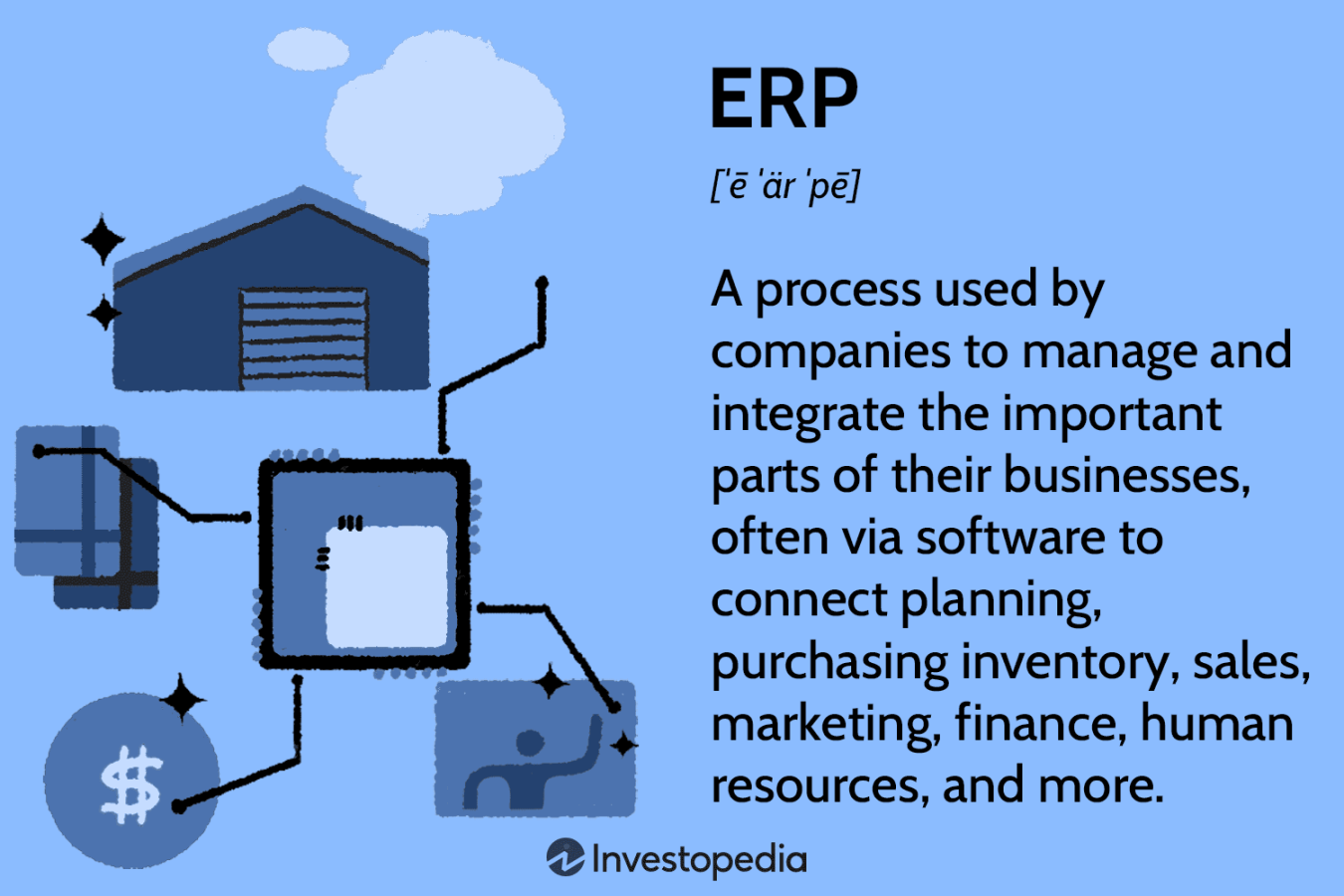In today’s competitive business landscape, streamlining operations and maximizing efficiency are crucial for success. This is where Enterprise Resource Planning (ERP) software comes in. ERP is a powerful tool that helps businesses integrate and manage core processes across various departments.
What is ERP Software?

ERP software functions as a central nervous system for your organization. It unifies various functionalities like finance, accounting, supply chain management, human resources, customer relationship management (CRM), and more into a single platform. This integrated approach eliminates data silos, fosters collaboration across departments, and provides real-time insights into business performance.
Key Features of ERP Software

ERP software offers a comprehensive suite of features to manage all aspects of your business. Here’s a glimpse into some of the key functionalities:
Financial Management: ERP streamlines financial processes like accounts payable/receivable, general ledger, budgeting, and forecasting.
- Supply Chain Management: It provides tools for inventory management, procurement, order fulfillment, and warehouse operations.
- Human Resources: Manage employee data, payroll, benefits administration, and talent management functions.
- Customer Relationship Management (CRM): Track customer interactions, manage sales pipelines, and improve customer service.
- Manufacturing: ERP caters to production planning, scheduling, quality control, and material requirements planning (MRP).
- Reporting & Analytics: Generate comprehensive reports and leverage business intelligence (BI) tools to gain insights into operational performance.

Benefits of Implementing ERP Software
ERP software offers a multitude of advantages for businesses of all sizes. Here are some of the key benefits:
Improved Efficiency: Streamlined workflows and integrated data eliminate redundancies and manual processes, boosting overall efficiency.
- Enhanced Visibility: Real-time access to data across departments provides a holistic view of business operations, facilitating better decision-making.
- Increased Collaboration: ERP fosters collaboration by breaking down departmental silos and enabling seamless information sharing.
- Reduced Costs: Improved resource management and optimized processes lead to cost savings across the organization.
- Improved Customer Service: ERP empowers businesses to manage customer interactions effectively, enhancing customer satisfaction.
- Better Inventory Management: Gain control over inventory levels, optimize stock levels, and reduce stockouts.
- Improved Compliance: ERP helps ensure adherence to regulations and simplifies compliance processes.
Different Types of ERP Software
ERP software solutions cater to businesses of varying sizes and industries. Here’s a breakdown of the different types available:
On-premise ERP: This traditional model involves installing and maintaining the software on your own servers.
- Cloud-based ERP: A subscription-based model where the software is hosted by a third-party vendor, offering greater scalability and accessibility.
- Industry-Specific ERP: Tailored solutions catering to the specific needs and requirements of particular industries like manufacturing, healthcare, or retail.
Choosing the Right ERP Software
Selecting the right ERP software is a crucial decision for any business. Here are some key factors to consider:
Business Needs: Identify your specific business needs and challenges to determine the functionalities you require.
- Scalability: Choose a solution that can scale with your business growth as your needs evolve.
- Budget: ERP software can be a significant investment. Consider your budget and choose a solution that offers the best value for your money.
- Implementation: Evaluate the implementation process and ensure the vendor provides adequate support throughout the process.
- Security: Data security is paramount. Choose a solution with robust security features and ensure it complies with relevant regulations.
Implementation Considerations for ERP Software
Successful ERP implementation requires careful planning and execution. Here are some key considerations:
Change Management: Prepare your employees for the transition and provide comprehensive training to ensure a smooth adoption process.
- Data Migration: Migrating existing data into the new system requires careful planning and data cleansing to ensure data accuracy.
- Customization: ERP software can often be customized to meet specific business needs. However, excessive customization can increase complexity and costs.
- Integration: Ensure your ERP system integrates seamlessly with existing applications used within your organization.
The Future of ERP Software
The future of ERP software is brimming with innovation. Here are some emerging trends to watch:
Cloud-based Solutions: Cloud deployment models will continue to gain traction due to their scalability, affordability, and ease of use.
- Artificial Intelligence (AI) & Machine Learning (ML): Integration of AI and machine learning will transform ERP by automating tasks, providing predictive insights, and optimizing processes.
- Mobile Access: Mobile-enabled ERP solutions will allow users to access critical information and functionalities on the go.